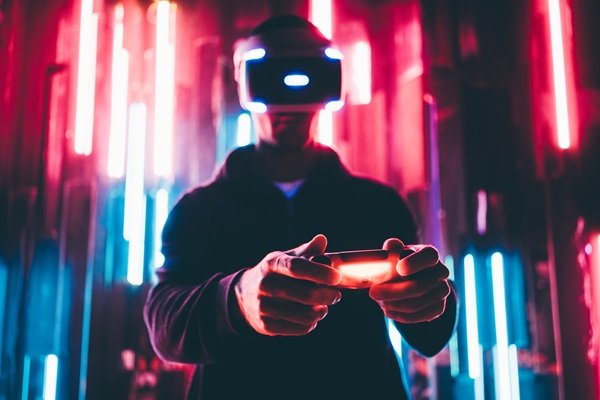
A Guide to Artificial Intelligence in Video Games – Exploring the Future of Emerging Technologies, Digital Economy, Data Security, and HealthTech
Published on December 30th, 2024
Introduction
Artificial intelligence (AI) has transformed many industries, and the world of video games is no exception. AI has significantly improved the player experience, making gameplay more immersive, dynamic, and responsive. It enhances everything from non-playable character (NPC) behavior to creating personalized in-game experiences. In this article, we’ll explore how AI is shaping the future of video games, with a focus on emerging technologies, the digital economy, data security, and its potential impact on HealthTech.
1. How AI is Changing Video Game Development
AI has become a core element in video game development, allowing for more realistic game environments, smarter enemies, and evolving storylines. With AI, developers can create procedurally generated worlds that change based on player actions, offering unique experiences each time. AI also helps generate lifelike character behaviors and movements, making interactions more natural and realistic.
Why it matters: AI enables developers to go beyond static game design, creating more unpredictable and engaging player experiences that evolve over time.
2. Enhancing Gameplay: Smart NPCs and Dynamic Worlds
Non-playable characters (NPCs) are essential to immersive gaming. AI allows NPCs to respond intelligently to players’ actions, making the game world feel more interactive. These AI-driven characters can have unique personalities and react to player decisions, offering a deeper and more personalized experience. AI can also create dynamic game environments that change based on how the player interacts with the world, adding layers of unpredictability.
Why it matters: AI-driven NPCs and dynamic environments create richer, more engaging experiences that connect with a broader range of players.
3. Personalizing Player Experiences with AI
AI is used to personalize the gaming experience by analyzing player behavior. By tracking a player’s actions and preferences, AI can adjust difficulty levels, recommend in-game items, or suggest missions that match their interests. This level of personalization keeps players engaged, increasing their playtime and satisfaction.
Why it matters: Personalized gameplay powered by AI helps developers keep players engaged longer by catering to their unique preferences and skills.
4. AI’s Role in the Digital Economy of Gaming
As the gaming industry grows, AI plays a vital role in revenue strategies. AI-driven analytics help developers understand player behavior, predict trends, and optimize in-game purchases, microtransactions, and ads. These insights enable developers to generate more revenue while ensuring a smooth, enjoyable experience for players.
Why it matters: AI supports the digital economy by enhancing monetization strategies, leading to better financial outcomes for game developers.
5. Data Security and Ethics in AI-Driven Games
While AI improves gameplay and monetization, it also raises important concerns about data security and ethical use. As video games collect large amounts of personal data, ensuring this information is secure becomes critical. AI must be used responsibly to avoid breaches or privacy issues. Developers need to consider how AI interacts with sensitive player data and comply with privacy laws.
Why it matters: Strong data security and ethical AI use are essential for maintaining player trust and ensuring compliance with data protection laws.
6. AI’s Impact on HealthTech and Gaming
In the future, AI could bridge the gap between gaming and HealthTech. Games involving physical movement or brain training could benefit from AI to improve mental and physical health. For example, AI could personalize fitness games by offering real-time feedback, or design brain-training games that improve cognitive function. These advancements would leverage AI to offer personalized health insights.
Why it matters: Integrating AI into gaming and HealthTech could provide new ways to improve fitness, mental well-being, and rehabilitation through gamification.
Conclusion
AI is transforming the video game industry by enhancing gameplay, personalizing player experiences, and helping developers generate more revenue. As AI technologies continue to evolve, they will also raise important issues related to data security and ethics. The future holds exciting possibilities, especially with the potential to integrate AI with HealthTech, offering innovative solutions for both entertainment and health. Video games powered by AI will continue to evolve, creating new experiences for players and developers alike.
